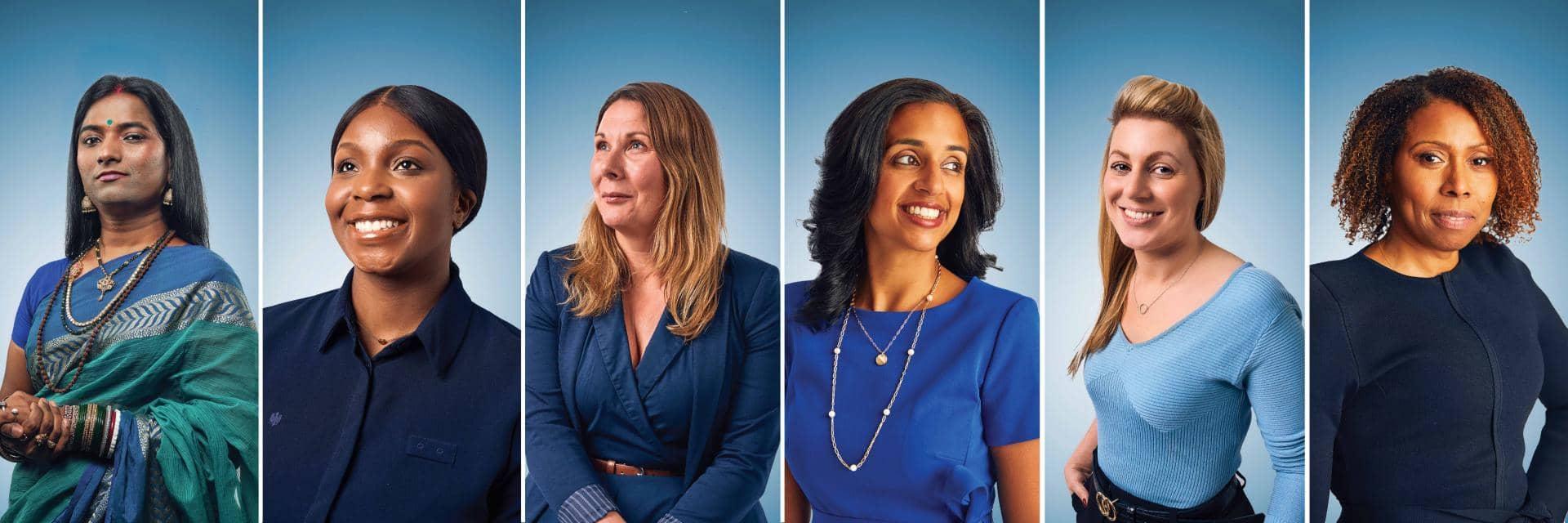
International Women's Day 2023: why embracing equity is essential
08 March 2023
International Women’s Day is an opportunity for us to reflect on how we are working to embrace equity. Find out more about Barclays’ gender priorities and hear from six women across the bank about why equity is so important – and what it means to them.
International Women’s Day may only come around once a year, but our commitment to making Barclays an inclusive place for women, is a constant focus. The bank has a Gender Ambition of 33% female representation in senior roles by the end of 2025 and action plans are in place to achieve this goal. Equity and inclusion are essential for our industry, and it’s incredibly important that women want to join and build a career at Barclays.

Global Head of Corporate and Investment Bank, President of Barclays Bank Plc, and Accountable Executive for the bank’s Gender agenda
At Barclays, we’re committed to continuing to build a diverse, equitable, and inclusive workplace. We believe that when we make our organisation inclusive and equitable, we can make the most of the different backgrounds, perspectives, and experiences of our colleagues and better serve our customers and clients.
Having achieved our initial gender target of 28% by the end of 2021, in 2022, we announced our refreshed gender ambition of 33% representation of women in senior leadership roles (Managing Director and Director) by the end of 2025 to continue to improve gender diversity at Barclays. As of year-end 2022, 29% of our senior leaders are women. Female representation on the Board has also continued to rise, increasing from 33% in 2021 to 38% as at the end of 2022. Read more about Barclays’ approach to DEI and our gender priorities.
Embracing Equity: perspectives from six colleagues around the world
“Equity is important because… attitudes in society need to change”
I’m a transgender woman and in previous organisations, I faced hurtful words and people who saw me as if I wasn’t human. In a place like that, even if you’re doing good work, you don’t have acceptance. Barclays is different. They gave me leave to go through my surgery, sorted out the insurance, and have always been there to help me. My managers have become like family members. By supporting employees like me, the bank is playing a role in helping to change things. I’m lucky that my parents supported me, but many people within the LGBT+ community do not have the same experience. I decided to go public with my transition because I want to be a role model for young boys and girls out there who are dealing with the same things – many people who want to go on this journey might not be comfortable coming out and making such a big decision, because of societal or family pressures. Equity is about addressing systemic inequalities to ensure everyone has access to the same opportunities and outcomes. When it comes to working towards equity, it’s important to remember that you don't have to be a part of a community to be able to understand and support that community – you can be an ally.
Jayanthi Thakur, Team Support Specialist, UK Cards, Chennai, India
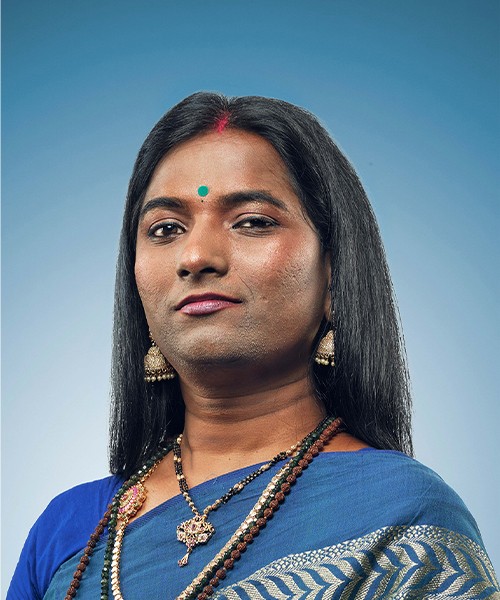
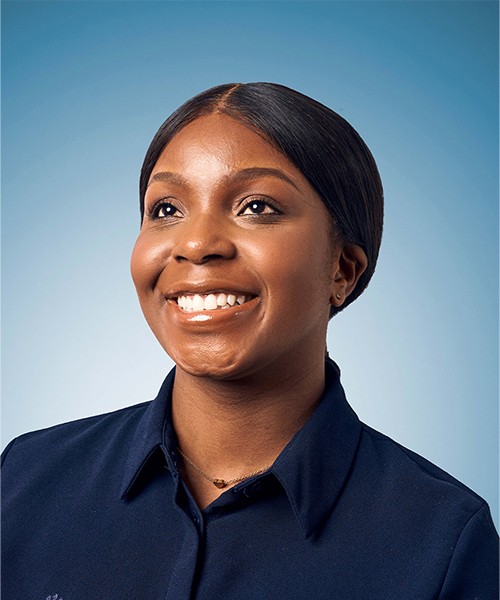
“Equity is important because… it means embracing everyone”
I’ve been at Barclays for nearly 20 years. As a Black woman working with a global financial services provider, I’m thankful for the opportunities that have enabled me to get to the position I am in today – I am proud to be part of an organisation that is working to break down gender barriers and unlock individuals’ potential. Equity means recognising that somebody else’s starting point could be different to yours, and it begins with creating a culture where everyone feels like they belong. That sense of belonging is essential to me. Providing fair opportunities for all colleagues based on their individual needs is a huge part of achieving true equity.
Regina Tetteh, Customer Care Leader, London, UK
“Equity is important because… everybody has potential”
I grew up working class: my dad was in manual labour and my mum didn’t do paid work, so starting at the bottom was challenging without support or career insights. I came across barriers in financial services – people who didn’t see the potential in me because I wasn’t middle class or male. Now I’ve been in the industry for 25 years, and as UK Co-Chair of Win, Barclays’ gender employee resource group, I offer support to others. You can’t necessarily change the world, but you can change the world for one person. It’s tough as a working mum – women are more likely to take time out and to work part-time because of caring responsibilities. That can hold us back and needs to be acknowledged. I’ve only been able to achieve what I have because of my family, particularly my mum who has been able to care for my children while I worked.
Sharon Sharples, Director, Business Management and Strategy, Operational Risk, Northampton, UK
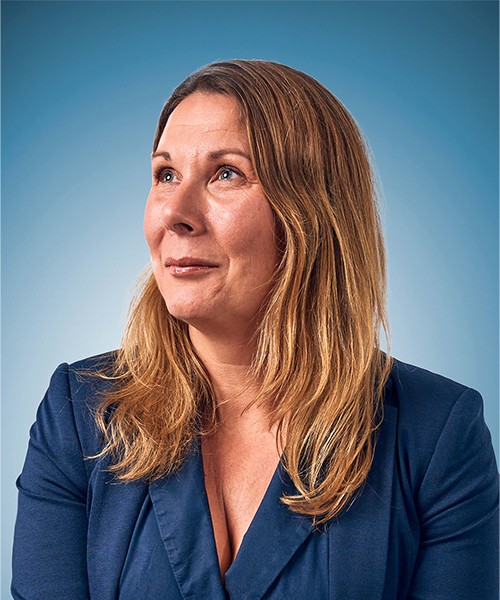
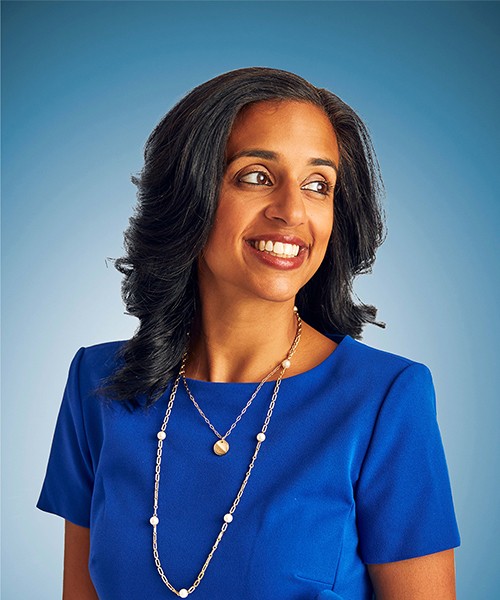
“Equity is important because… it will drive our industry forward"
Financial services were nothing short of male-dominated at the start of my career. We’re welcoming the much-needed changes that have begun to filter into banking culture, including a sector-wide focus on supporting women in finance. And while we have undoubtedly witnessed progress in bridging the gender gap, paying attention is not enough. The world around us is changing rapidly, and if we don’t embrace the need for equity and diversity, we are going to get left behind as an industry. This needs to be championed, strengthened and sustained as an essential company goal. The desire for change must become mission-critical. The focus can’t be limited to a check-the-box exercise or a single date on the calendar – prioritising the agenda means not only encouraging but also embedding allyship among all colleagues. Let’s get everyone interested in true equity for real – not just for one day.
Purvi Dave, Managing Director, Structured Derivatives Sales, New York, US
“Equity is important because… one solution does not fit all”
I recently returned to work after maternity leave and Barclays has been great, allowing me to work flexibly. Because of childcare responsibilities, I wasn’t able to come back to the business full-time, and I’ve been supported to work four days a week, even though that’s not the way my particular role usually works. So for me, equity is about looking at the individual, whatever their background, and thinking about how they can be supported. What are their needs? What additional things can we do to help? It’s important to remember that, actually, treating people the same can sometimes be unfair, when you realise that not everybody has the same privileges in terms of education or social and cultural backgrounds. All of that needs to be taken into consideration. One solution won’t work for everyone.
Jennifer Rogers, Associate Banker, London, UK

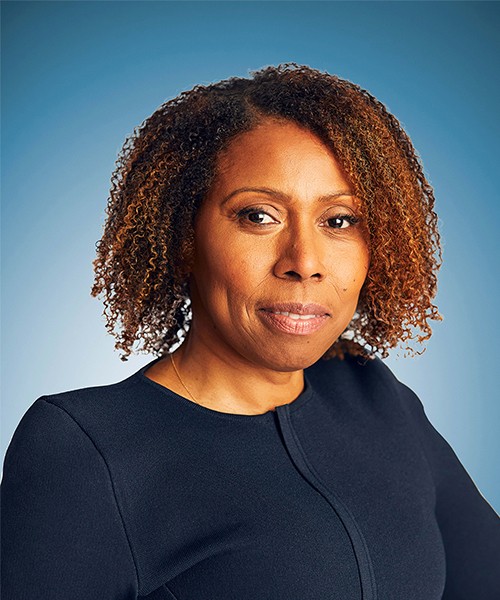
“Equity is important because…we need to level the playing field to have global success”
Workplace inequity often goes undiscussed, but it can have a demoralising and deflating impact on the individuals it affects. On the flipside, when colleagues feel there’s equity in their work environment, it strengthens their belief in the organisation – and reinforces the feeling that they’re part of something greater than themselves. Equity is achieved when we effectively level the playing field, so that everyone, regardless of where they start, can achieve their goals. Organisations should be purposeful in supporting women. International Women’s Day is celebrated on a single day – women’s contributions to an organisation should be celebrated every day. I started at Barclays in 2007, and in recent years I’ve experienced an evolution in the way the bank tackles gender inequity. The fact that we’re having these conversations tells me that we’re moving in the right direction. But we can’t afford to become complacent now, as there is still so much more work to do.
Holly Pyke-Brown, Global Head of Prime Contracts Services, New York, US